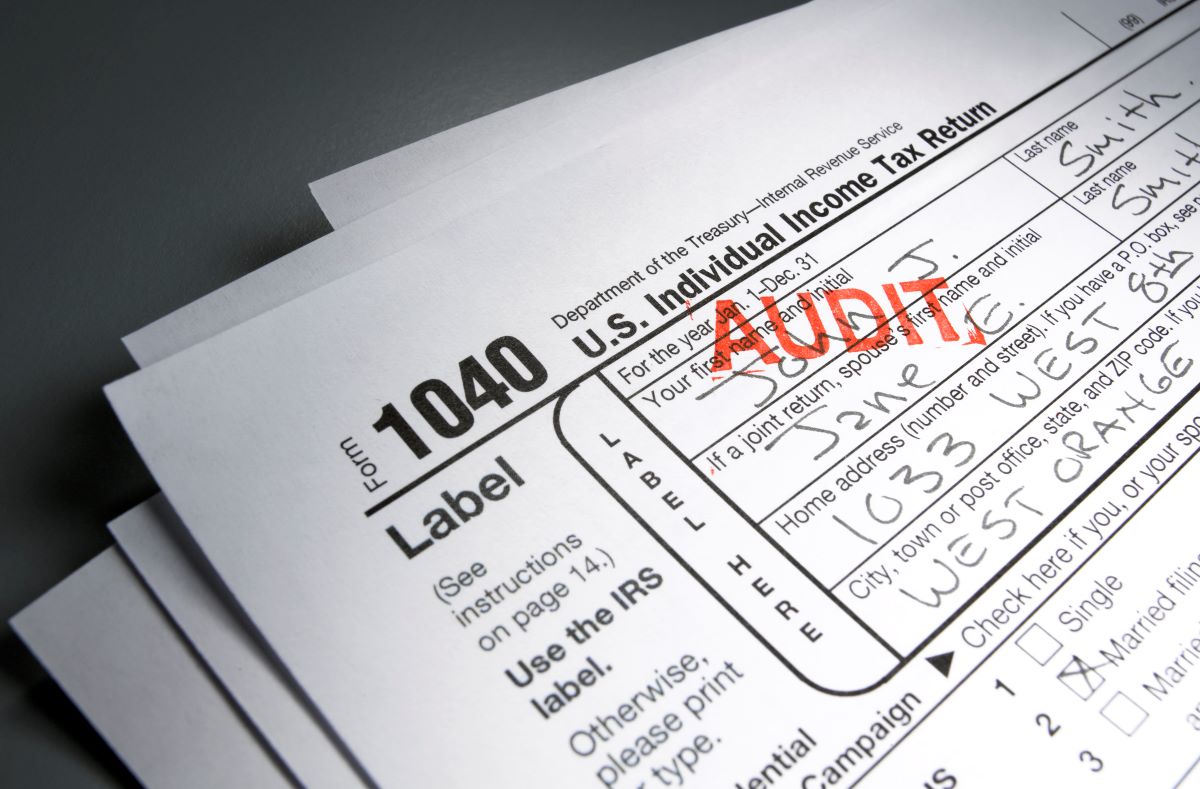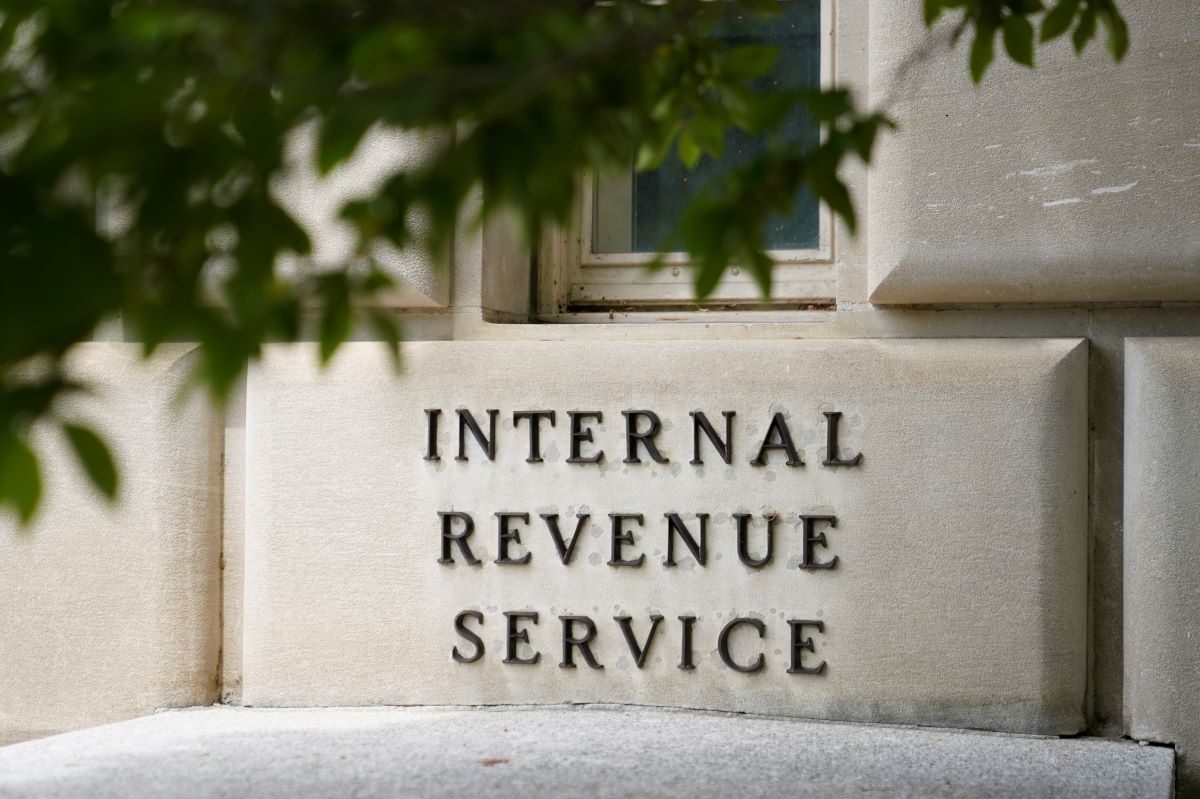

Finance
How Much Does An IRS Agent Make?
Modified: December 30, 2023
Wondering about the salary of an IRS agent in the field of finance? Find out how much an IRS agent makes and explore their earning potential.
(Many of the links in this article redirect to a specific reviewed product. Your purchase of these products through affiliate links helps to generate commission for LiveWell, at no extra cost. Learn more)
Table of Contents
Introduction
When it comes to the world of finance, one profession that stands out is that of an IRS (Internal Revenue Service) agent. These individuals play a vital role in the enforcement of tax laws and ensuring that individuals and businesses are complying with their tax obligations. But have you ever wondered how much an IRS agent makes?
IRS agents are responsible for a range of important tasks, including conducting tax audits and investigations, reviewing tax returns for accuracy, and providing guidance and assistance to taxpayers. They work diligently to ensure that everyone pays their fair share of taxes and that no one is engaging in illegal or fraudulent activities.
To become an IRS agent, individuals must meet specific education and training requirements. They need to have a bachelor’s degree in accounting, finance, or a related field, and they must also complete additional coursework or obtain relevant certifications. This rigorous training ensures that IRS agents have the necessary knowledge and skills to carry out their job effectively.
Once individuals have completed their education and training, they can start working as IRS agents. Their job duties and responsibilities include conducting audits and examinations, interviewing taxpayers, analyzing financial records, and identifying any discrepancies or noncompliance. They play a crucial role in enforcing tax laws and ensuring that taxpayers are fulfilling their obligations.
Now, the burning question: how much does an IRS agent make? The salary and compensation for IRS agents can vary depending on several factors. These factors include their level of experience, the location of their employment, and the specific position they hold within the IRS.
Education and Training Requirements
To become an IRS agent, individuals must meet specific education and training requirements. These requirements ensure that agents have the necessary knowledge and skills to effectively carry out their duties. Here is a breakdown of the education and training requirements for aspiring IRS agents:
Bachelor’s Degree: The first step in becoming an IRS agent is to obtain a bachelor’s degree. While there is no specific major required, earning a degree in accounting, finance, or a related field is highly recommended. These majors provide a solid foundation in financial principles, tax laws, and auditing practices, which are essential for success as an IRS agent.
Coursework: In addition to a bachelor’s degree, aspiring IRS agents must complete additional coursework related to taxation and auditing. This coursework can cover topics such as federal income tax, tax planning strategies, tax compliance, and financial statement analysis. Some IRS agents may also choose to pursue a master’s degree in accounting or taxation to further enhance their knowledge and credentials.
Certifications: While not mandatory, obtaining relevant certifications can significantly boost an individual’s credentials and career prospects as an IRS agent. One such certification is the Enrolled Agent (EA) designation, offered by the IRS. To become an EA, individuals must pass a comprehensive exam that tests their knowledge of tax laws and regulations. Becoming an EA demonstrates a high level of expertise and can open doors to more advanced positions within the IRS.
Training Programs: Once individuals have completed their education, they must successfully complete training programs before they can work as IRS agents. These training programs provide hands-on experience in conducting audits, reviewing tax returns, and handling various tax-related issues. They also familiarize agents with the internal processes and procedures of the IRS, ensuring that they are well-equipped to perform their duties effectively.
It is worth noting that the IRS often seeks individuals with a strong background in accounting, finance, or law enforcement for entry-level positions. This is because these fields provide a solid foundation in the skills and knowledge necessary for tax enforcement. However, individuals with degrees in other disciplines may still have opportunities to become IRS agents if they can demonstrate their knowledge and expertise in tax laws and regulations.
Job Duties and Responsibilities
As an IRS agent, individuals are responsible for a wide range of important tasks that ensure taxpayers are complying with tax laws and regulations. Here are the key job duties and responsibilities of an IRS agent:
Tax Audits and Examinations: One of the primary roles of an IRS agent is to conduct tax audits and examinations. They carefully review tax returns for accuracy, identify potential discrepancies or noncompliance, and determine the extent of any additional tax liability. This involves analyzing financial records, interviewing taxpayers, and gathering evidence to support their findings.
Investigations and Enforcements: IRS agents are also involved in investigating and enforcing tax laws. They look for signs of tax evasion, fraud, or other illegal activities and take appropriate action to hold taxpayers accountable. This may involve conducting interviews, issuing subpoenas, and collaborating with other law enforcement agencies when necessary.
Education and Guidance: Another important aspect of an IRS agent’s role is to provide education and guidance to taxpayers. They answer questions, offer advice, and help individuals and businesses understand their tax obligations. This includes assisting taxpayers in properly completing their tax returns and informing them about any changes or updates to tax laws.
Resolution of Disputes: IRS agents also play a crucial role in resolving tax-related disputes between taxpayers and the IRS. They work to find fair and equitable solutions that satisfy both parties and ensure compliance with tax laws. This may involve negotiating payment plans, settling penalties, or recommending alternative resolutions, such as mediation or arbitration.
Stay Updated on Tax Laws: To effectively carry out their job, IRS agents must stay updated on the ever-changing tax laws and regulations. They continuously research and study new tax codes, court decisions, and IRS guidelines to ensure that they have the most accurate and current information. This knowledge allows them to make well-informed decisions and provide accurate guidance to taxpayers.
Collaboration and Coordination: IRS agents often collaborate and coordinate with other professionals within the IRS, such as tax attorneys, auditors, and criminal investigators. They work as a team to ensure the efficient and effective enforcement of tax laws and the achievement of IRS objectives.
It is important to note that IRS agents are expected to uphold the highest standards of professionalism, ethics, and confidentiality. They handle sensitive taxpayer information with utmost care and maintain the trust and integrity of the IRS and its enforcement efforts.
Salary and Compensation
The salary and compensation for IRS agents can vary based on several key factors, including their level of experience, the location of their employment, and the specific position they hold within the IRS. Here is an overview of the salary range and compensation for IRS agents:
Entry-Level Positions: Newly hired IRS agents typically start at the GS-5 or GS-7 level on the federal government’s General Schedule (GS) pay scale. The salary for these positions can range from around $37,000 to $55,000 per year. However, it’s worth noting that these figures can vary depending on the cost of living in the specific area of employment.
Experience and Promotions: As IRS agents gain experience and expertise in their role, they have opportunities for advancement and promotions. Higher GS levels, such as GS-9, GS-11, and beyond, come with increased responsibilities and higher salary ranges. With each promotion, IRS agents can expect a raise in their salary, reflecting their increased experience and qualifications.
Location: The geographic location of employment can significantly impact an IRS agent’s salary. Cost of living and regional pay differences influence the salary ranges for positions within the federal government. For example, IRS agents working in areas with higher living costs, such as major cities, may receive a locality pay adjustment, which provides an additional percentage on top of their base salary.
Additional Benefits and Incentives: In addition to their base salary, IRS agents are entitled to a comprehensive benefits package. This typically includes health insurance, retirement plans, paid time off, and opportunities for professional development and advancement. The federal government also provides special benefits and incentives for employees, such as flexible work arrangements and student loan forgiveness programs, which can further enhance an IRS agent’s overall compensation.
Income Potential: As IRS agents progress in their careers and assume higher-level positions, such as supervisory roles or specialized divisions, their salary potential increases. At the higher GS levels, the annual salaries for experienced IRS agents can range from $80,000 to $100,000 or more, depending on various factors as mentioned earlier.
It is important to note that the salaries mentioned are approximate ranges and can vary based on individual circumstances and the most recent updates to the General Schedule pay scale. It is advisable for individuals interested in pursuing a career as an IRS agent to consult official government resources for the most accurate and up-to-date salary information.
Factors Affecting IRS Agent Salaries
The salary of an IRS agent can vary based on several factors that influence their earnings. These factors can determine how much an agent is paid and their overall compensation package. Here are the key factors affecting IRS agent salaries:
Experience and Seniority: One of the most significant factors influencing an IRS agent’s salary is their level of experience and seniority within the organization. As agents gain more experience and move up the career ladder, they become eligible for higher-level positions and promotions. With each promotion, their salary typically increases to reflect their growing expertise and responsibilities.
Education and Specializations: An IRS agent’s educational background and any specialized certifications or qualifications can impact their salary. Agents with advanced degrees or specialized knowledge related to tax laws and enforcement may be eligible for higher-level positions that come with higher pay. Additionally, obtaining certain certifications, such as the Enrolled Agent (EA) designation, can enhance an agent’s credentials and potentially lead to higher-paying opportunities.
Geographic Location: The geographical location where an IRS agent is employed can have a significant impact on their salary. The federal government uses the locality pay system to adjust salaries based on the cost of living in different areas. Agents working in regions with a higher cost of living, such as major cities, generally receive a higher salary to compensate for the increased expenses.
Position and Job Level: The specific position and job level within the IRS can also influence an agent’s salary. As agents progress in their careers, they may take on more senior or management roles, which often come with higher pay. Additionally, certain specialized divisions within the IRS may offer higher salaries to agents with expertise in specific areas, such as criminal investigations or international tax compliance.
Government Pay Scales and Policies: IRS agent salaries are determined by the General Schedule (GS) pay scale, which sets the salary ranges for federal government employees. The GS pay scale is based on a combination of factors, including job classification, experience, and seniority. Changes to the GS pay scale, such as annual adjustments or pay raises, can impact an agent’s salary.
Economic Factors: Economic conditions and budgetary considerations can also influence IRS agent salaries. During times of economic downturn or budget constraints, the federal government may implement hiring freezes or limit salary increases. On the other hand, during times of economic stability and growth, there may be more opportunities for salary advancements and bonuses.
It is important to note that while these factors can influence an IRS agent’s salary, they do not determine it in isolation. Each individual’s salary is determined based on a combination of these factors, as well as other agency-specific policies and considerations.
Job Growth and Career Outlook
The job growth and career outlook for IRS agents can vary depending on various factors, including government budgets, changes in tax laws, and the overall economy. Here is an overview of the job growth and career outlook for aspiring and current IRS agents:
Stable Demand: The need for IRS agents is expected to remain relatively stable. The enforcement of tax laws and policies is a vital function of the government, ensuring that taxpayers meet their obligations and maintain tax compliance. As long as there is a need to enforce tax laws, there will be a demand for IRS agents to carry out these responsibilities.
Retirements and Turnover: The retirement of experienced IRS agents, coupled with turnover and attrition, can create opportunities for new agents to enter the field. As older agents retire, new hires are needed to fill the vacant positions. This turnover can provide career advancement opportunities for individuals starting their careers as IRS agents.
Advancement Opportunities: IRS agents have the potential for career growth and advancement within the organization. By gaining experience, pursuing additional education or certifications, and demonstrating professional competence, agents can qualify for promotions to higher-level positions. These positions may entail supervisory roles, specialized divisions, or management positions, offering increased responsibilities and higher salaries.
Changes in Tax Laws: As tax laws and regulations evolve, IRS agents must adapt to these changes. The shifting landscape of tax policies can have an impact on the demand for IRS agents as new laws may require additional enforcement and auditing efforts. Agents who stay updated with changes in tax laws and possess the necessary skills and knowledge will likely fare well in their careers.
Technology and Automation: Technological advancements and automation have started to impact the role of IRS agents. The use of data analytics and computerized systems has increased efficiency in the tax auditing and enforcement processes. While this may streamline certain aspects of the job, it also requires agents to adapt and develop additional technological skills to effectively utilize these tools in their work.
Specialization and Expertise: IRS agents who develop specialized knowledge and expertise in specific areas of taxation may have enhanced career prospects. Specializations such as international tax compliance, criminal investigations, or complex tax cases can create niche opportunities for agents to advance their careers and take on more challenging and rewarding assignments.
Overall Job Stability: The nature of the work and the importance of tax enforcement provide IRS agents with relative job stability. While budgetary constraints and fluctuations in government funding can impact staffing levels, the fundamental need for tax enforcement ensures a consistent demand for IRS agents over the long term.
In summary, the job growth and career outlook for IRS agents are expected to remain stable. Continuous demand for IRS agents, coupled with retirement and turnover, create opportunities for new and aspiring agents. Adapting to changes in tax laws and developing specialized knowledge can further enhance career prospects within the IRS.
Conclusion
Becoming an IRS agent can be a rewarding career choice for individuals interested in finance, taxation, and law enforcement. While the salary for IRS agents can vary based on factors such as experience, location, and job level, the overall compensation is competitive, and there are ample opportunities for career growth and advancement.
IRS agents play a crucial role in ensuring tax compliance, investigating potential tax fraud, and providing education and guidance to taxpayers. Their responsibilities include conducting tax audits, enforcing tax laws, resolving disputes, and staying updated on ever-changing tax regulations.
To embark on a career as an IRS agent, individuals must fulfill education and training requirements, obtaining at least a bachelor’s degree in accounting, finance, or a related field. Additional certifications, such as the Enrolled Agent (EA) designation, can also enhance an agent’s credentials.
The job growth and career outlook for IRS agents are relatively stable, driven by the continuous need for tax enforcement and the retirement of experienced agents. Advancement opportunities exist for those who gain experience, develop specialized knowledge, and demonstrate professional competence.
Although technological advancements and automation may impact certain aspects of the role, the fundamental need for IRS agents and their expertise in tax enforcement ensures overall job stability in the field.
In conclusion, a career as an IRS agent offers a rewarding opportunity to contribute to the nation’s financial system, uphold tax laws, and protect taxpayers’ interests. With the potential for career growth and a competitive salary, becoming an IRS agent can pave the way for a successful and fulfilling professional journey.














